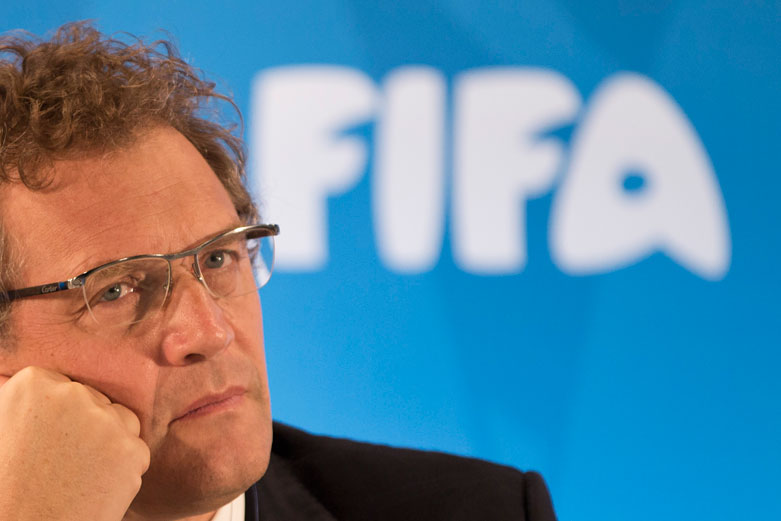FIFA says it will not pay any of Brazil’s World Cup bills even though it admits the hiost nation’s failure to fulfill their commitments may jeopardize the tournament’s success.
FIFA Secretary General Jerome Valcke has been warned that some cities are threatening to renege on their promise to fund things such as temporary structures and fanfests, which FIFA regards as an integral part of a successful tournament.
Valcke said it was working with local officials to try to lower costs and reduce requirements, but he guaranteed “we will not take over” the payments to make up for the shortcomings of organisers.
FIFA said it was paying $1.4 billion to stage the World Cup in Brazil. The total cost for Brazil was estimated at about $14 billion.
“We pay for all that we are using. We are not taking money,” Valcke said. “The cities have to do their own work, they have to deliver, including the fanfest, because it’s an obligation of the cities.
“There are agreements between host cities and the local organizing committee, there are clear commitments. Part of this commitment is to deliver X, Y, Z. FIFA doesn’t have to take over. Otherwise, why organise with a country? It’s a partnership.”
Last week, the northeastern city of Recife said it would not spend public money on a fanfest, which permits fans to watch matches on large screens in public areas. In Porto Alegre, the president of the Brazilian club in charge of Beira-Rio Stadium said there was a risk the venue would be unavailable for the World Cup because of a dispute over who will pay for the temporary facilities required by FIFA.
Valcke said some cities were expressing concern with the fanfests because they could be a visible target for anti-government demonstrators, who oppose the billions being spent on the World Cup at the expense of basic public services.
“When it’s a financial commitment, why should we take over?” asked Valcke.
FIFA said there was a joint effort to reduce many of the costs “without jeopardizing quality and safety.”
Football’s governing body said it had already picked up a bill of nearly $20 million for power generators needed for the broadcast operations.
“We stepped in because it’s not a question just of money,” he said. “We were afraid that we would not be on time to deliver this energy. And without it, we cannot broadcast the World Cup.”







